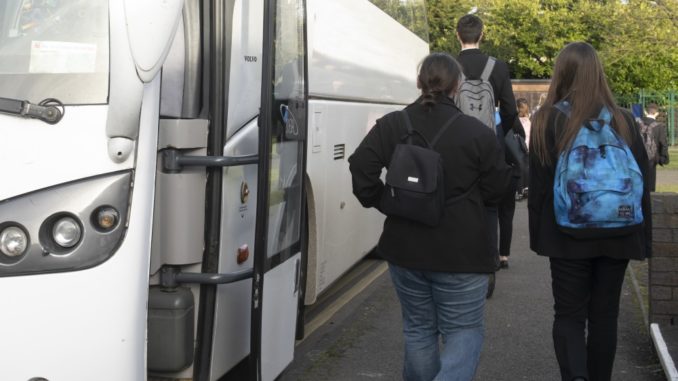
One of the country’s highest spending local authorities on home to school transport has unveiled a plan to save more than £3m by restricting the number of children who are eligible for the service.
North Yorkshire Council will today consider launching a public consultation, to start on February 5, over cutting eligibility to its legal requirement to provide transport to the nearest suitable school.
The council, which covers the largest local authority area, currently lays on free transport to pupils from the start of reception year to the catchment school or the nearest school to their home address where the walking distance is more than two or three miles, depending on age.
The proposed policy change would mean children would only have eligibility to one school – the nearest school to their home address.
While it remains unclear how many children the change would affect, the report states other proposed eligibility changes, including for children who live with two different parents and for transport to denominational primary schools, would impact on few pupils.
However, an officer’s report to senior authority figures states: “There could be a disproportionate impact on rural communities as the prevalence of school transport services to rural schools is higher given that home to school travel
distances are inherently longer.
“The proposed policy change has the potential to change the pattern of admissions at all schools where transport provision is a factor.
“Any proposal which reduces eligibility could result in increased use of parental cars dependent on the response and future behaviours of parents.
“However, the potential focus of eligibility on the grounds of nearest school only could reduce the numbers of commissioned transport services over time and would reduce the travel distances for those services.
“Therefore, this would have a positive impact on the climate impact of
the council home to school transport network.”
The policy change would apply to new admissions from September and would affect new entrants to schools with effect from the following school year, meaning families with more than one child could have different eligibility.
The authority is forecasting needing to raid its reserves in three years for £82m and a recurring deficit of about £40m, despite declaring more than £40m of savings as a result of unitarisation.
The bleak financial outlook is largely driven by the explosion in special educational needs and disability costs.
Providing home to school travel is the third largest item of expenditure for the council, costing £42m for the year to April, more than doubling since 2015-16.
The council’s executive member for education, Councillor Annabel Wilkinson, has been approached for a comment.


Be the first to comment